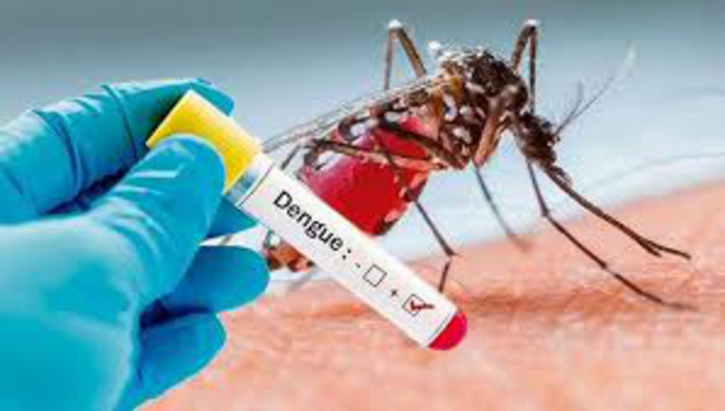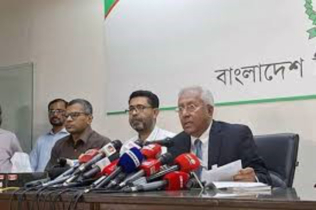
Two days of continuous rainfall have worsened the situation in Narayanganj city. Waterlogging has caused the drainage system to collapse, leading to a surge in dengue cases.
The city’s two major government hospitals—Khanpur 300-bed Hospital and Narayanganj Victoria General Hospital—are currently overwhelmed with patients suffering from dengue and viral fevers.
During a visit to the outpatient department of Khanpur 300-bed Hospital yesterday (Monday) noon, it was observed that around 30 to 40 patients, both children and adults, were waiting in line with fever. Many complained of vomiting, dizziness, and high fever. Doctors reported that many are directly opting for dengue tests.
Dr. Al Mamun, a physician at the hospital’s emergency department, said, “For the past week, we’ve seen an increase in patients with fever. However, after the past two days of rain, the number of dengue cases has notably risen. We are receiving at least 10 to 12 dengue patients every day. Those without severe symptoms are being sent home after testing, and they are keeping in touch with us via mobile.”
Most of the dengue patients are between 20 and 40 years old, though many school and college students are also among the infected.
A doctor from the emergency department of Victoria General Hospital stated, “We generally admit dengue patients only if their platelet count is low or if they suffer from excessive vomiting. However, people have become more aware now. They are coming for tests if the fever persists for more than two days.”
At the hospital corridor sat Rabeya Khatun, a resident of Sadar Thana area, whose 16-year-old son, Siam, had been suffering from fever for two days. Rabeya said, “The doctor advised a dengue test. I’m quite worried.”
Meanwhile, Dr. Abul Bashar, superintendent of Khanpur 300-bed Hospital, warned, “Everyone must be cautious about dengue mosquitoes during this monsoon. The most crucial thing is not to ignore fever. If anyone has a fever for more than two days, they must visit the hospital. Many people stay at home during fever, which can be dangerous.”
He added, “The biggest problem with dengue is that patients often come to the hospital at the last moment, when complications have already worsened.”
In several city areas, water has accumulated after rainfall, worsening the mosquito infestation. Areas such as Deobhog, Masdair, Talla, Char Syedpur, and Khanpur were seen submerged in water, with open drains overflowing. Jahangir Alam, a resident of Char Syedpur, said, “As soon as it rains, the entire area floods. The mosquito problem has become so severe that we can’t even sleep properly at night.”
City residents complain that the drainage system is so poor that even light rain leads to waterlogging, causing not only transportation difficulties but also increasing the risk of dengue and other waterborne diseases.
Narayanganj City Corporation (NCC) Chief Health Officer Dr. Nafiya Islam said, “We are regularly conducting fogging and spraying mosquito repellents. However, people also need to be aware. Everyone must keep their surroundings clean. After rain, care should be taken to ensure that no water accumulates in flowerpots, tin roofs, abandoned drums, or plastic containers.”
While it is too early to definitively predict the dengue situation in Narayanganj, health officials are clearly warning that the risk is rising with the rains. Dr. Abul Bashar said, “The next month is very crucial. Dengue cases may increase further with ongoing rain. If we are not cautious now, the situation could spiral out of control.”
Doctors advise that anyone with a fever lasting more than three days should immediately undergo a dengue test, keep their surroundings clean, drain any stagnant water, sleep under mosquito nets, and avoid taking any medication without consulting a doctor.
TH

.png)







